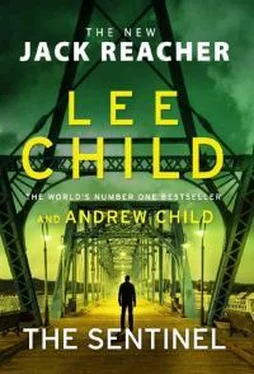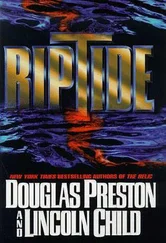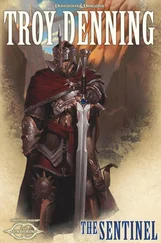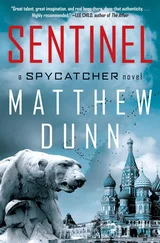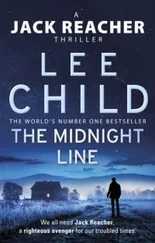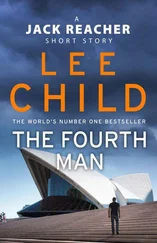‘Normally I wouldn’t have done that,’ Reacher said, settling back in his chair. ‘Not right off the bat. I’d have given him a chance to walk away. But then I remembered he was the one who took the kid’s guitar, so I figured all bets were off.’
Lockhart was scrabbling for his phone. ‘We should call 911. Quick.’
‘Your friend will be fine,’ Reacher said. ‘Or maybe he won’t. But in the meantime, while he’s dealing with his breathing issues, let’s get back to the band’s contract. You promised to pay how much?’
‘I promised nothing.’
Reacher ran his finger along the edge of the plate. ‘I think you did.’
Lockhart lunged sideways, going for his drawer. Reacher tracked his movement and tossed the plate, spinning it like a frisbee. It caught Lockhart on the bridge of his nose, shattering the bone and rocking him back in his chair.
‘I’m beginning to think this toy is dangerous.’ Reacher picked up the plate and dropped it on the floor. ‘You shouldn’t play with it any more. Now. The contract. Give me a number.’
‘Two hundred dollars.’
‘Two hundred dollars was the original figure. But since it was agreed, you’ve revealed an interest in human fingers. Tell me, how many are there on a guitar player’s left hand, for example?’
‘Five.’ Lockhart’s voice was muffled thanks to his restricted airway.
‘Technically there are four. The other digit is a thumb. But I’ll take your answer. So two hundred dollars multiplied by five is …?’
‘A thousand.’
‘Very good. That’s our new figure. We take cash.’
‘Forget it.’
‘There’s plenty of cash here. If counting is too difficult for you, maybe I should just take all of it?’
‘All right.’ Lockhart almost squealed. He selected two stacks of bills and slid them across the desk.
‘Good. Now let’s add your late payment fee. That’s an additional five hundred.’
Lockhart glowered, and handed over another stack.
‘We’re almost done now. Next up is the equipment replacement surcharge. A round one thousand.’
‘What the–’
‘For the kid’s guitar. Your buddy tossed it down some stairs. Get the money back from him if you want, but there’s no way it’s coming out of my client’s pocket.’
Lockhart’s eyes were flickering back and forth across his dwindling heap of cash. Reacher could almost see his brain working as he calculated how much he had left, and whether his chances of keeping any would improve if he cooperated. ‘OK. Another thousand. But not one cent more. And tell those kids if they ever come back, I’ll break more than their fingers. And even if they don’t come here, they’ll never play in this town again.’
Reacher shook his head. ‘We were doing so well, and you had to ruin it. You didn’t let me finish. We’d covered the payments. But we hadn’t gotten around to the incentives. This is important, so listen carefully. Every band member I represent has me on speed dial. If anything happens to any of them, I’ll come back here. I’ll break your arms. I’ll break your legs. And I’ll hang your underwear from the ceiling of the bar. While you’re still wearing it. Are we clear?’
Lockhart nodded.
‘Good. Now, incentive number two: other bands. Even if I don’t represent them, I’m extending an umbrella agreement. As a courtesy. Think of it as my contribution to the arts. What it means is that if I hear about you ripping off another band, I’ll come back. I’ll take all your money. And I’ll hang your underwear from the ceiling of the bar, same way as before. Are we clear on that, too?’
Lockhart nodded.
‘Excellent. And in case you were wondering, I’ll be carrying out random spot checks to test for compliance. Now, when is the next band playing here?’
‘Tomorrow.’
‘OK. I hope they’re as good as tonight’s. But even if they’re not, remember. They get paid.’
Rusty Rutherford was not normally the type of guy who dawdled in his local coffee shop. He used to go to the same one every day. Always on his way to work. And purely for the caffeine. He didn’t go in search of conversation. He wasn’t interested in finding new company. His routine was always the same. He stood quietly in line and used the time to contemplate whatever problems were in store for him that day. He placed his order. Collected his drink as soon as it was ready. And left. The process was transactional, not social. Even after the week he spent isolated in his apartment it proved a difficult habit to break.
The adjustment process wasn’t made any easier by the response he received from the other patrons. Normally his was a pretty neutral presence. People weren’t pleased to see him. They weren’t displeased. They displayed no curiosity. No animosity. He could have been a store mannequin for all the effect he had on the social interactions that occurred in the place. That Monday, though, he felt like a magnet with the wrong polarity. He seemed to repel everyone around him. The surrounding customers left a bigger space than usual on either side. In the rare moments he was able to make eye contact the other person turned away before he could think of a way to start a conversation. By the time he reached the counter he still hadn’t exchanged a single word with a fellow human being. But he had seen how the barista interacted with the two men in front of him when they stepped up to order. She smiled at them. And asked if they wanted their regular. She didn’t smile at him. And she didn’t say a word.
‘My regular, please,’ Rusty said.
‘Which would be what?’ she asked.
Rusty heard someone sniggering behind him in the line. He felt the urge to run. But no, he was there on principle. To fight for his rights. A little ridicule was not going to break his resolve. ‘House blend, medium, no room for milk.’
‘Two dollars even.’ The barista turned, grabbed a to-go cup, and slammed it on the counter.
‘No.’ Rusty shook his head. ‘I want to drink it here.’
The barista shot him a look that said Really? I’d rather you didn’t.
‘Oh, that’s right,’ she said out loud. ‘I forgot. You lost your job. You don’t have any place to go.’ She tossed the to-go cup in the trash, took out a china one, poured, slopping coffee into the saucer, and slid it towards him, spilling even more.
The same time Rusty Rutherford was going into the coffee shop, a telephone was starting to ring. In a house a mile outside of town. In a room containing two people. A man and a woman. The woman recognized the ringtone the moment the phone began to chirp. She knew what it meant. Her boss was going to require privacy, so she stood up without waiting to be dismissed. Closed her notebook. Slid it into the pocket at the front of her apron. And made her way to the door.
The man checked that the secure icon on the phone’s screen was green, then hit the answer key. ‘This is Speranski.’
Speranski wasn’t his real name, of course, but it might as well have been. He’d been using it professionally for more than five decades.
The voice at the other end of the line said one word: ‘Contact.’
Speranski closed his eyes for a moment and ran the fingers of his free hand through his wild white hair. It was about time. He had made plenty of plans over the years. Been involved in plenty of operations. Survived plenty of crises. But never had the stakes been so high.
For him. Personally. And for the only person in the world he cared about.
The same time the telephone was being answered, Jack Reacher was getting into a car. He had solved his physics/biology conundrum to his satisfaction – and the bar owner’s extreme discomfort – and begun walking back to the bus station. He had been planning to follow his time-honoured principle of taking the first bus to leave, regardless of its destination, when he heard a vehicle approaching slowly from behind. He stuck out his thumb on the off chance and to his surprise the car stopped. It was new and shiny and bland. A rental. Probably picked up at the airport. The driver was a tidy-looking guy in his early twenties. He was wearing a plain dark suit and the speed of his breathing and the pallor of his face suggested he wasn’t far from a full-blown panic attack. A business guy, Reacher thought. Let out alone for the first time. Desperate not to screw anything up. And therefore screwing up everything he touched.
Читать дальше
